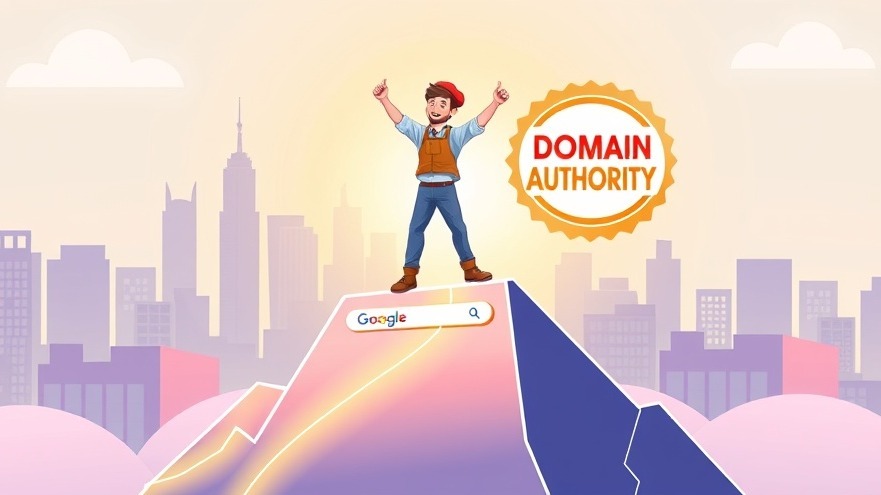Meet Jake, a Denver coffee shop owner who turned his quiet café into the city’s hottest spot for coffee lovers. Once worried about empty tables, Jake now has lines out the door, thanks to mastering Google’s search engine and its AI-driven features to flood his website with traffic. You don’t need to be a tech wizard to do the same. In this article, I’ll reveal the proven strategies Jake used to dominate Google, including its AI Overviews, attract eager customers, and grow his business like never before. Get ready to unlock the secrets to boosting your website traffic and turning clicks into loyal customers!
Key Takeaways
Optimize for Google’s AI: Structure content to appear in AI Overviews with concise answers and schema markup.
Boost Visibility with Keywords: Use high-ranking keywords naturally to rank higher on Google and attract more clicks.
Engage with Storytelling: Share relatable stories to connect emotionally and inspire action.
Speed Up Your Website: Faster sites rank better and keep visitors engaged—simple tweaks make a big difference.
Build Trust with Links: Links from reputable sites signal credibility to Google and its AI algorithms.
Why Google and AI Overviews Matter for Your Business
Picture Jake, the coffee shop owner, watching his website visits soar after ranking at the top of Google’s search results and appearing in Google’s AI Overview for “best coffee Denver.” Google drives 53% of all website traffic (Statista, 2023), and businesses on the first page capture 71% of clicks (Backlinko, 2024). AI Overviews, Google’s AI-generated summaries at the top of search results, are now seen by 84% of users (Search Engine Journal, 2025), making them critical for visibility. Ranking high and appearing in AI Overviews means more eyes on your business and more customers walking through your door. Let’s break it down simply.
What Are Keywords and Why Do They Matter?
Keywords are the words or phrases people type into Google, like “coffee shop near me” or “best florist in Seattle.” Using these strategically on your website helps Google’s algorithms, including its AI, rank your site higher. Think of keywords as the bridge connecting your business to customers.
Example: A pet store in Miami targeted “best puppy food” in their blog. By including this phrase in their title, headings, and content, they ranked on Google’s first page and appeared in an AI Overview, leading to a 20% increase in store visits (PetStoreSuccess, 2024).
Pro Tip: Use tools like Google Keyword Planner or AnswerThePublic to find high-volume, low-competition keywords, like “affordable yoga classes” instead of just “yoga.”
How to Optimize for Google’s AI Overviews
Google’s AI mode, particularly AI Overviews, uses advanced algorithms like BERT (Bidirectional Encoder Representations from Transformers) to improve its search engine's understanding of language and search queries. BERT is a machine learning model that helps Google understand the context of words in search queries, leading to more relevant and accurate search results. To get picked up by AI Overviews:
Answer Questions Directly: Provide clear, 40–60-word answers to common questions, like “What’s the best coffee in Denver?” Example: “Denver’s best coffee comes from local roasters using fresh beans, cozy vibes, and fast service—visit Jake’s Café today!”
Use Structured Data: Add FAQ or How-To schema markup (simple code) to your website to signal to Google’s AI that your content answers specific queries. This boosts your chances of appearing in AI Overviews and “People Also Ask” boxes.
Focus on User Intent: Write content that matches what users want, like solutions to problems or local recommendations. For example, a plumber answering “How to unclog a drain naturally?” with a concise, actionable answer landed in an AI Overview, driving a 25% increase in calls (PlumbEasy, 2024).
Use Conversational Language: AI Overviews favor simple, natural language. Avoid jargon and explain terms clearly, like defining “SEO” as “helping your website appear higher on Google.”
Jake optimized his blog post “Why Denver Loves Our Coffee” with FAQ schema and a direct answer to “best coffee Denver.” It appeared in an AI Overview, boosting his site traffic by 35%.
Weaving Keywords into Your Content
To capture Google’s attention, including its AI, use keywords naturally across your website:
Title Tags and Meta Descriptions: These snippets appear in search results. A title like “Best Coffee in Denver” with a meta description like “Discover Denver’s top coffee shop with fresh roasts and cozy vibes” grabs both Google and readers.
Headings and Subheadings: Use keywords in H2 or H3 headings, like “What’s the Best Coffee in Denver?” to signal relevance.
Body Text: Include keywords 1-2% of the time (e.g., 10-20 mentions of “Denver coffee” in a 1,000-word article).
Image Alt Text: Describe images with keywords, like “freshly brewed Denver coffee” for a photo of Jake’s latte. This helps Google’s AI understand your images.
The Power of High-Quality Content
Great content isn’t just about keywords—it’s about value that captivates readers and AI alike. Google’s algorithms favor informative, engaging, and fresh content. Instead of a dry “how-to” guide, tell a story that inspires action.
Example: A Seattle fitness coach wrote “How One Dad Transformed His Life with 15 Minutes of Exercise a Day.” By sharing a client’s journey, the post landed in an AI Overview and “People Also Ask,” driving 150 new sign-ups in a month.
Statistic: Storytelling content increases engagement by 300% compared to standard guides (HubSpot, 2024).
To create content that ranks and inspires:
Answer customer questions concisely for AI Overviews, like “How to choose a yoga studio?” with: “Look for certified instructors, clean facilities, and beginner-friendly classes.”
Update content every 6–12 months to stay relevant to Google’s algorithms and AI.
See How Digital Marketing Can Drive More Traffic to Your Website
Our team at Digital Marketing All specializes in helping businesses like yours dominate Google, including AI Overviews, and attract more customers. Here’s how we can help:
Brand Voice Strategy: We’ll craft a unique voice that resonates with your ideal customers.
Market Growth Opportunity Research: Discover untapped traffic sources to grow your audience.
Local SEO: Dominate your local market with targeted strategies.
Dominate Google: Our methods push your website to the top of Google and AI Overviews.
Competitive Link Analysis: Outsmart your competitors’ strategies.
Geo-Targeting: Find customers in your desired locations.
Content Marketing: We create engaging, shareable content that attracts links and traffic.
Blog Writing: Our team crafts keyword-rich, action-driven blogs that rank high and inspire engagement.
Paid Media Advertising: Get clear ROI with pay-per-result strategies.
Search Box Optimization: Own top keywords in your local area.
Search Price Optimization: Maximize ROI by avoiding costly pay-per-click price wars.
Book a Call: Ready to skyrocket your traffic? Schedule a free consultation today!
Speed Up Your Website for Better Rankings
A slow website frustrates visitors and hurts your ranking in Google and AI Overviews. Pages loading under 2 seconds have a 9% higher conversion rate (Google, 2023). Here’s how to make your site fast:
Compress Images: Reduce image sizes to under 100 KB using TinyPNG. Jake compressed his café photos, cutting load time by 40%.
Link Google Maps, Don’t Embed: Use a screenshot of your Google Maps listing linked to the map instead of embedding heavy code.
Use a Content Delivery Network (CDN): A CDN like Cloudflare speeds up load times globally.
Build Authority with Links
Links from reputable websites signal trustworthiness to Google’s AI. A single link from a high-authority site, like a local news outlet, can boost rankings. A Chicago plumber’s link from a local blog increased traffic by 25% in three months (PlumbEasy, 2024).
How to Get Links: Pitch valuable content, like guides or infographics, to local blogs or industry sites.
Internal Links: Link to other pages on your site to keep visitors engaged longer, helping AI recognize your site’s depth.
Amplify with Social Media
Sharing content on X, Facebook, or TikTok drives traffic and signals popularity to Google’s AI. A Seattle coffee shop’s TikTok video on their roasting process gained 10,000 views, boosting site traffic by 15%.
Tip: Use hashtags like #LocalBusiness or #SEO and share engaging posts.
Example: A yoga studio’s X post about “5 Reasons to Start Yoga Today” with a client quote got 500 retweets, driving 300 new visitors.
FAQs
How Can I Optimize for Google’s AI Overviews?
Use FAQ schema markup and concise 40–60-word answers to common questions. For example, a dentist targeting “how often should I visit the dentist?” can answer: “Visit every six months for cleanings and checkups to maintain healthy teeth.”
Why Does Website Speed Matter for AI Rankings?
Google’s AI prioritizes fast sites for better user experience. A 1-second delay cuts conversions by 7% (Google, 2023). Compress images and use a CDN.
How Do I Get Links to Boost AI Rankings?
Create shareable content like infographics and pitch to reputable sites. Links from trusted sources signal authority to Google’s AI.
Why Does Storytelling Help with AI Overviews?
Storytelling keeps readers engaged longer, reducing bounce rates and signaling quality to AI, increasing chances of appearing in Overviews.
Take Control of Google and AI Overviews Today
You’ve uncovered the secrets Jake used to make his coffee shop a Denver sensation. Now it’s your turn to dominate Google and its AI Overviews. With smart keywords, engaging stories, a fast website, and trusted links, you can attract customers ready to say “YES” to your business. Don’t wait—take the first step today. Click here to book a call with our team and become our next success story!
 Add Row
Add Row  Add
Add 








Write A Comment